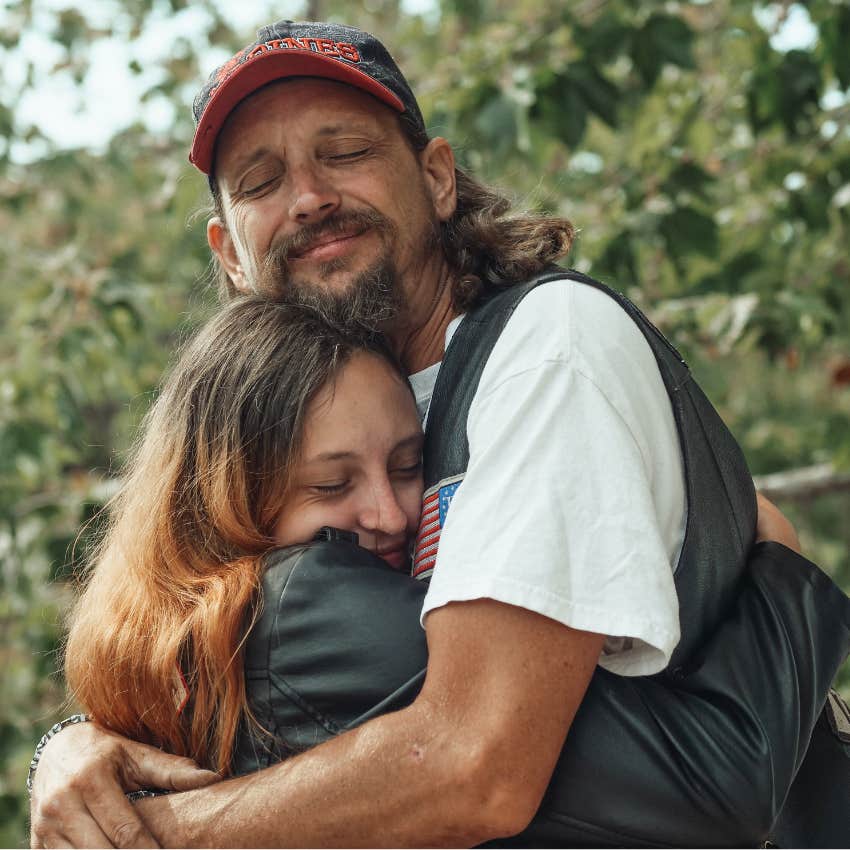The One Sign You Were Raised By Sad Parents And It’s Affecting You Now
There wasn't much laughter in your childhood.
 Pecaphoto77 | Shutterstock.com
Pecaphoto77 | Shutterstock.com It's estimated that nearly 35 million children grow up in trauma that impacts them into adulthood. And while trauma is broad, podcaster Jamie Laing recently explored how kids raised with sad parents have a very unique experience.
To explore the issue in depth, Laing invited British author and philosopher Alain De Botton on his “The Great Company” podcast to discuss how a childhood without joy can impact the personality of an individual in one very specific way.
In fact, this lighthearted personality trait is often seen as a positive attribute but is really just a rebellion against the sadness of their youth.
There’s one tell-tale sign that you were raised by sad parents, and it’s still affecting you in adulthood.
De Botton simply explained, "People who are very funny often grew up in circumstances that were not funny at all."
Children with parents who were depressed honed their comedic skills from an early age to combat the sorrow that surrounded their upbringing. It was likely a coping mechanism.
De Botton added, "The wit of a child is there to ward off the parent's depression."
Oftentimes, funny adults or people who use humor as a coping mechanism were raised by sad or depressed parents.
Laing recalled British comedian Jimmy Carr famously saying, “People always ask me if I’m depressed because I’m a comedian. But, really, you should be asking me if my parents were depressed.”
And while meant to be a joke, Carr's comedic material was taken from real life — as is the case for many funny adults.
“The risk of psychiatric disorders, especially mood and anxiety disorders, is increased in young people who have a depressed parent,” Dr. Vicky Powell explained in her academic paper entitled "Following the Children of Depressed Parents from Childhood to Adult Life: A Focus on mood and anxiety disorders."
Not only from a genetics standpoint are children more likely to adopt the mental health disorders of their parents, but their coping mechanisms are almost always affected by this behavior.
One child could use laughter and jokes as a coping mechanism for uncomfortable feelings while also ignoring their depressive symptoms or mood swings. In the same moment, they can actively ward off uncomfortable emotions — similar to those of their parents — and ignore similar ones in themselves.
Our parents and childhoods greatly influence who we are, how we cope, and our perception of the world.
Our parents, and more broadly, our childhood experiences, affect us in adulthood much more than we realize — from our health to our coping mechanisms, communication skills, relationships, self-perception, and confidence.
We don’t shed our past so quickly.
Children often overcompensate for an unhappy home life that includes having depressed or sad parents. These children can take on the role of “entertainer” in an effort to bring joy to the people they care about the most.
 Kindel Media | CanvaPro
Kindel Media | CanvaPro
While it may be hard to come to terms with as an adult, our childhoods hold the secrets of why we behave the way we do as adults.
It’s exactly why so many people find it soul-exposing to navigate “inner child” work and therapy — we’re desperately trying to cling to the autonomy of adulthood instead of healing from our past.
Take the leap. Your adult self isn’t the only person who needs to move on, let go and heal.
Zayda Slabbekoorn is a News & Entertainment Writer at YourTango who focuses on health & wellness, social policy, and human interest stories
